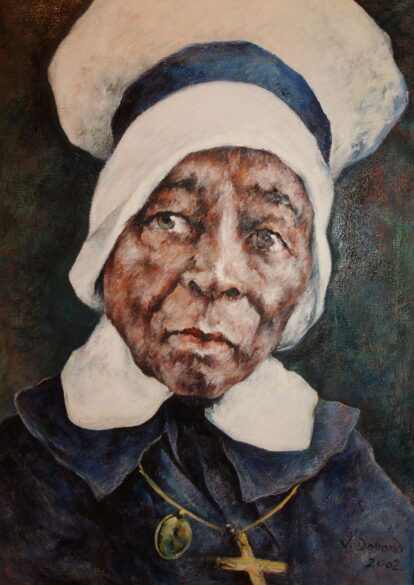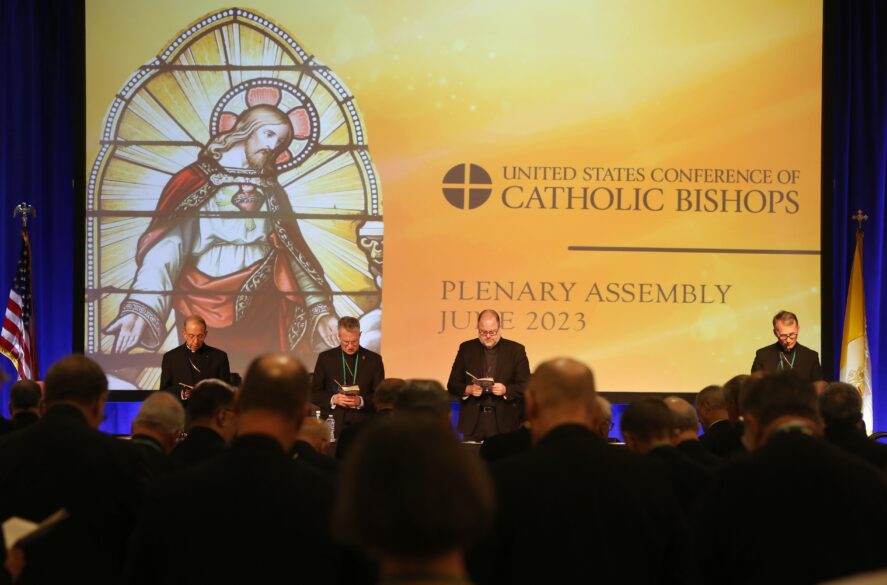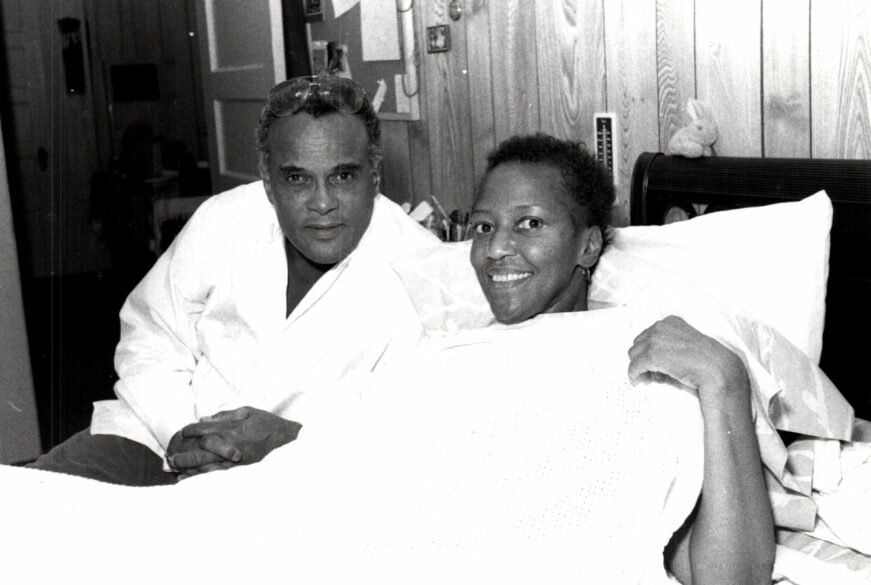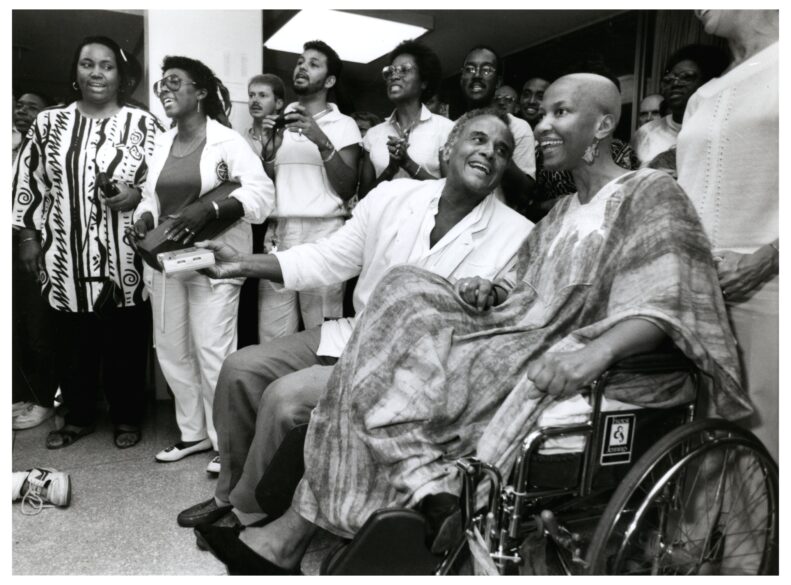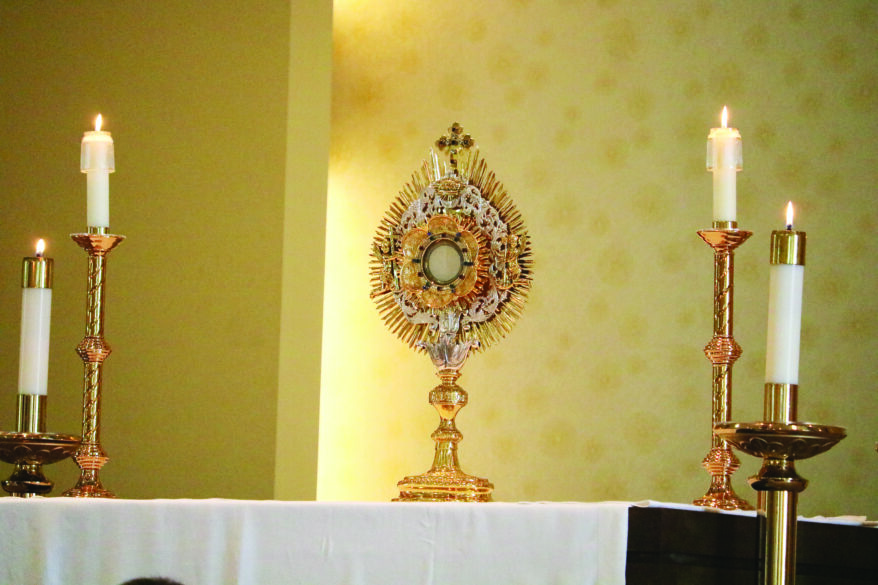(OSV News) — Carmelite Sister Lucia dos Santos, the last surviving Fatima visionary, died in the Carmelite cloister in Coimbra, Portugal, in February 2005 at the age of 97. At the time of her death, St. John Paul II recalled their “bonds of spiritual friendship that intensified with the passing of time.”
“I always felt supported by the daily gift of her prayers, especially in difficult moments of trial and suffering,” the pope wrote in a message to Bishop Albino Mamede Cleto of Coimbra, less than two months before the pope’s own death. “May the Lord repay her abundantly for the great and hidden service she gave the church.”
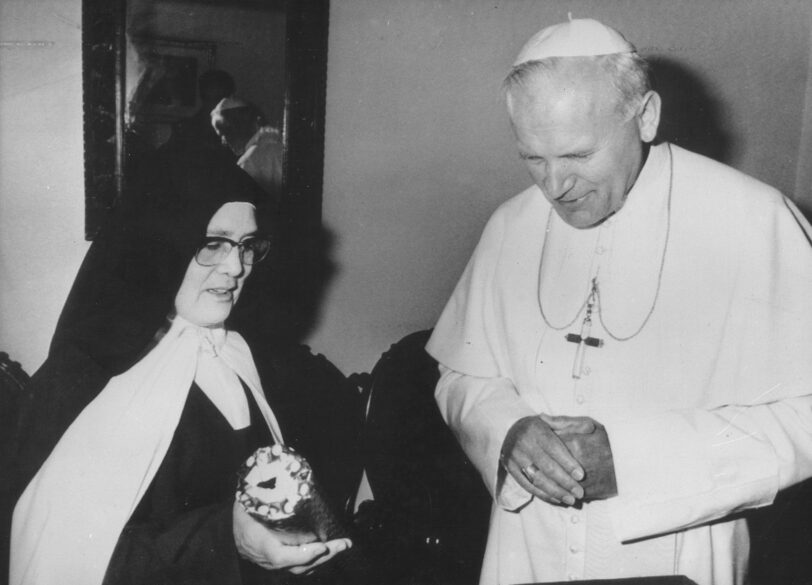
On June 22, Pope Francis declared Sister Lucia “venerable” with a decree recognizing the Fatima visionary’s heroic virtues. The next step toward official recognition of sainthood is beatification, after which Sister Lucia would be called “blessed,” followed by canonization, where she would be declared a saint. In general, the last two steps each require a miracle attributed to the intercession of the sainthood candidate and verified by the church.
The Portuguese girl was only 10 years old when she and her two younger cousins told their family and friends that they had seen the Blessed Virgin Mary at Fatima in 1917. Mary first appeared to Lucia, 9-year-old Francisco Marto and 7-year-old Jacinta Marto on May 13, and the apparitions continued approximately once a month until October 1917, culminating in the “Miracle of the Sun.” The Catholic Church has ruled that the apparitions and the messages from Our Lady of Fatima were worthy of belief.
Francisco died in 1919 and Jacinta died 1920, both of the Spanish flu. St. John Paul beatified them in 2000.
That same year, St. John Paul, who met Sister Lucia three times, ordered the publication of the so-called “third secret” of Fatima, which he may have believed referred to the 20th-century persecution of the church under atheistic systems, such as Nazism and particularly Russian communism, and spoke of the 1981 attempt to assassinate him.
The pope was shot May 13, 1981, the anniversary of the first of the Fatima apparitions.
St. John Paul said he believed Mary saved his life that day; he sent one of the bullets removed from his abdomen to Fatima, where it is part of the crown on the statue of Our Lady.
In his 2005 message to Bishop Cleto, who died in 2012, the pope said that with her death, Sister Lucia “reached the goal she always aspired to in prayer and in the silence of the convent,” and she was a “humble and devout Carmelite who consecrated her life to Christ, the savior of the world.”
Seeing the Virgin Mary as a child “was the beginning of a unique mission for her, one to which she was faithful until the end of her days,” he said.
“Sister Lucia leaves us an example of great fidelity to the Lord and of joyfully following his divine will,” the pope wrote.
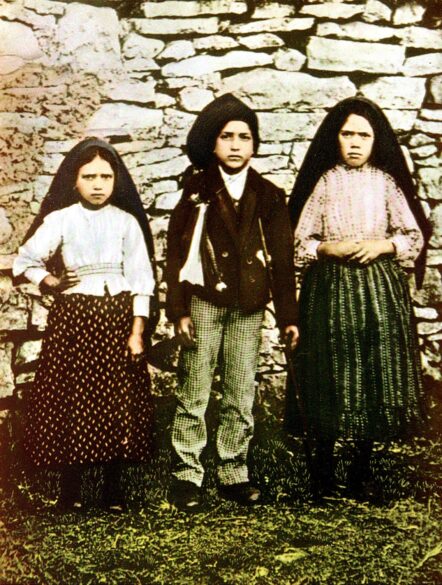
Upon Sister Lucia’s death, speculation surrounding her cause for canonization was immediate. Some wondered if St. John Paul would waive the five-year waiting period after a person’s death for a cause to open.
Jesuit Father Paolo Molinari, postulator of the cause for Sts. Francisco and Jacinta, said at the time he personally believed it was important to wait.
“We must avoid the danger of people thinking that she is being beatified or canonized just because of the visions,” he told Catholic News Service in 2005.
“The apparitions of Our Lady and what Our Lady said certainly had an impact on Sister Lucia’s life,” he said, but they did not make her holy.
“She accepted the message and she lived according to the message for more than 80 years, offering her life for the sake of sinners. This is holiness, not just receiving the grace of a vision,” said the Jesuit, who died in 2014, three years before Francisco and Jacinta were recognized as saints.
Ultimately, St. John Paul’s successor, Pope Benedict XVI, waived the standard waiting period for Sister Lucia’s cause, and it was opened in 2008. The Coimbra Diocese completed its investigation and forwarded documentation to the Vatican’s Congregation (now Dicastery) for the Causes of Saints in 2017, the apparitions’ centennial year.
Three months later, on May 13, 2017, Pope Francis canonized Sts. Francisco and Jacinta Marto.
(This reporting drew from Catholic News Service archives.)

